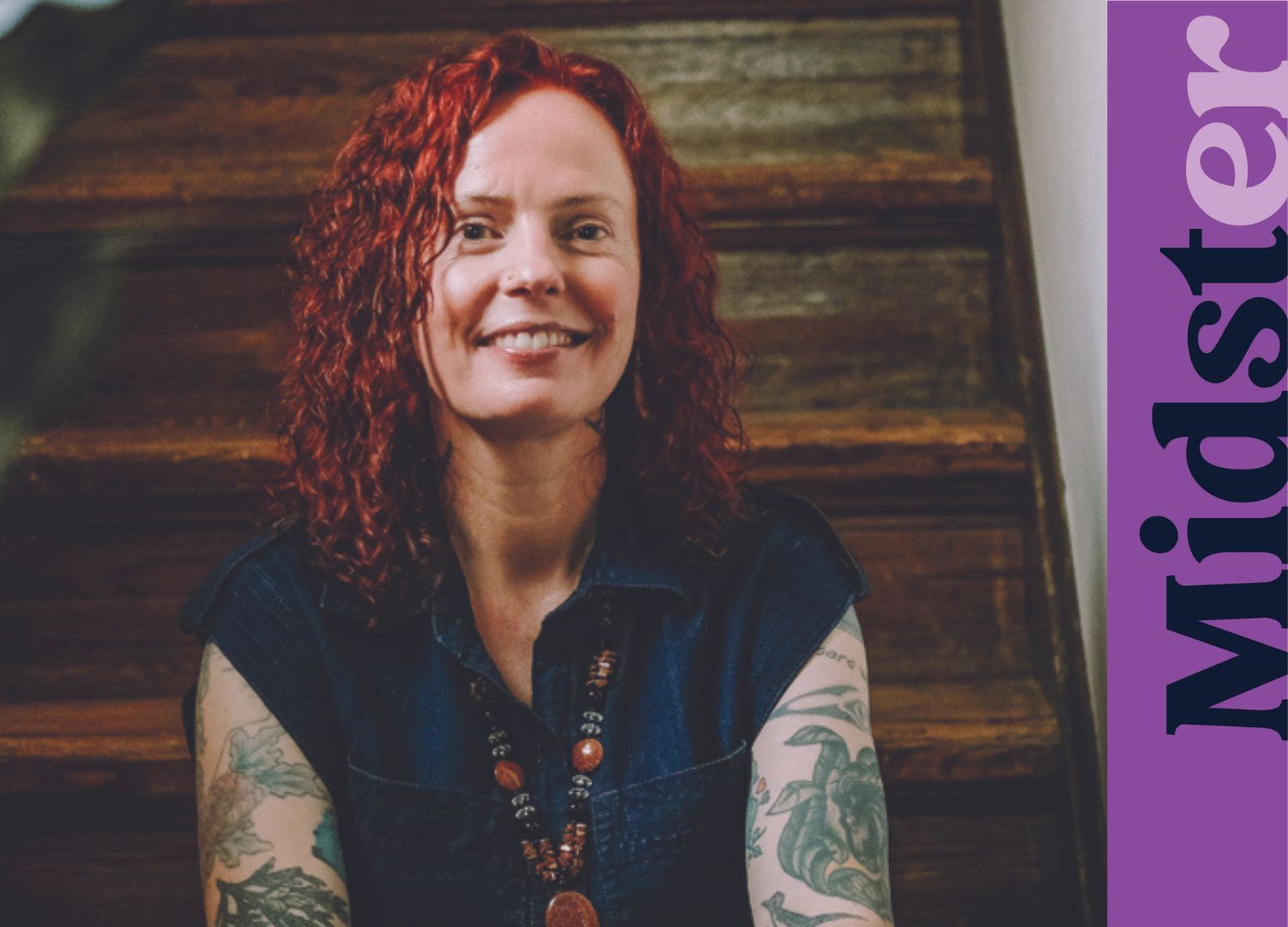
Burned out from the grown-up grind? Try kidulting.
How much time would you say you spend being an official grown-up? You know: dedicating your time, energy, and mental reserves to those activities that only a full-fledged adult has to do, like folding the laundry, sorting your finances, and doing the school run.
If your answer is “far too much”, it could be time to embrace your inner kidult.
Kidulting – a playful portmanteau of ‘kid’ and “adult” that means combining child-like playfulness, nostalgia and familiarity – encourages you to enjoy just-for-fun childhood activities. You can ride a bike, piece together a jigsaw, skip, color, or any other activity you enjoyed as a kid.
Kidulting is basically the antithesis of the many adult responsibilities that we spend our days doing now. And get this: Kidulting might be particularly beneficial for women in midlife, who take on the bulk of invisible labor, or those household and family tasks that can go largely unnoticed and unappreciated.
Burnout and the need to play
Research shows that women experience burnout more than men, and that putting some play in your day could be the key to overcoming it. Take the 2013 study that found ‘playful’ adults were better equipped to manage stress, or the research paper that shows grown ups who make time to play have improved wellbeing and life satisfaction.
You might wonder how it’s possible to make time for play, with so many adult responsibilities vying for your attention, and midlife posing new challenges in work, family, health and more. And if you can carve out that time, can kidulting really counteract the stresses and strains of being an official grownup?
Psychotherapist Yasmin Shaheen-Zaffar says yes, and that there are many scientifically-proven mental health benefits to enjoying childhood activities as an adult.
“Engaging in kidulting activities can activate the ventral vagal branch of the vagus nerve,” she explains. “This nerve is associated with feelings of safety, social engagement, and relaxation, and can help to counteract the effects of stress, while promoting a sense of well-being.”
Yasmin says that when kidulting, you can expect to feel a rush of warm emotions – a feeling you may have lost in the mundanity of everyday life.
“The joy, creativity, and playfulness associated with kidulting can stimulate the release of feel-good neurotransmitters, such as dopamine and endorphins, which can improve mood and reduce stress,” she says.
Kidulting, mindfulness and menopause
Have you ever turned to meditation when the demands of day-to-day life have felt a little too much? Kidulting is a form of mindfulness, too, but instead of focusing on your breath, you become fully engrossed with the task at hand, whether it’s coloring or crafting.
In this state, Yasmin says you are absorbed in the present moment, freed from the burden of responsibilities, and redirected from the overflowing laundry basket or that looming work deadline. You aren’t ruminating about the past or fixating on the future, either. Chances are that you aren’t thinking about very much at all – a benefit of doing an activity solely for enjoyment.
Another plus? Yasmin says kidulting can act as a vital form of self-care during menopause, helping with symptoms like stress, mood swings and fatigue, and as a balm during the many midlife shifts in career, divorce, retirement, or adapting to an empty nest.
“Kidulting can serve as a coping mechanism during these challenging times, providing an outlet for managing stress and promoting positive emotions,” Yasmin says.

Finding time for play
Of course, making time for play as an adult isn’t easy. Women still shoulder the bulk of the household and childcare responsibilities, and these important yet overlooked activities take up a significant amount of our time and mental energy.
In fact, in a recent Deloitte Survey, work/life imbalance was cited as one of the biggest contributors to growing levels of stress among working women. This much is true: with so much responsibility on our shoulders, we need to prioritize time to connect with that childlike and carefree part of ourselves.
Jennifer Cairns, 51, has made kidulting a priority in her life. After a particularly stressful period, she was inspired to take up coloring, a much-loved childhood activity. Jennifer uses a swear word coloring book to shake off the stresses of the day.
“Every page has some kind of swear word on it, and I love it as it makes me laugh, even when I’m annoyed,” she says. “It’s also a great stress-reliever, particularly when I’m feeling overwhelmed with work.”
For Jennifer, kidulting has been key in helping her navigate the challenges of midlife.
“Midlife can be challenging for anyone. When you combine hot flashes with fatigue, anxiety, general health concerns and the strains of work and business, it’s a heck of a lot to carry at times,” she says. “We need these little releases to relax and reset and take our minds off the everyday hurdles. Doing something solely for enjoyment is good for mind, body and soul, and when you have that, you can get through almost anything.”
So, how can even the most grown-up among us incorporate kidulting into our day-to-day?
- Schedule it, just like you would any other important activity, says Yasmin. This can be tricky if your schedule is already packed, but she advises that you treat it as a non-negotiable self-care appointment, and commit to making it a regular part of your routine.
- Find activities that bring you joy. This step can take a little trial and error, so experiment with lots of different activities, whether it’s dancing, sports, building LEGO or arts and crafts, and see which one really resonates with you. Remember: it will be different for everyone.
- Finally, once you’ve found an activity that lights you up, give it your all. Be fully present, and immerse yourself in the experience. “To really get the benefits of kidulting, you’ll need to let go of distractions and worries, and instead focus on the joy and playfulness of the activity,” Yasmin says.
Don’t be afraid to lock your phone away in a drawer or let your family know you need a little alone time. But while kidulting can absolutely be a solitary activity, you might find you feel most joyful when sharing it with others, so involve friends and family in your playful pursuits if you’d like. “Sharing the joy of kidulting with others can enhance the experience and deepen social connections,” Yasmin notes.
There’s no quick fix when it comes to minding your mental health, and it’s true that kidulting won’t solve all of your problems. But it might just help you manage the trials and tribulations of being an official grown up.
Photo by Andra C. Taylor at Unsplash.




